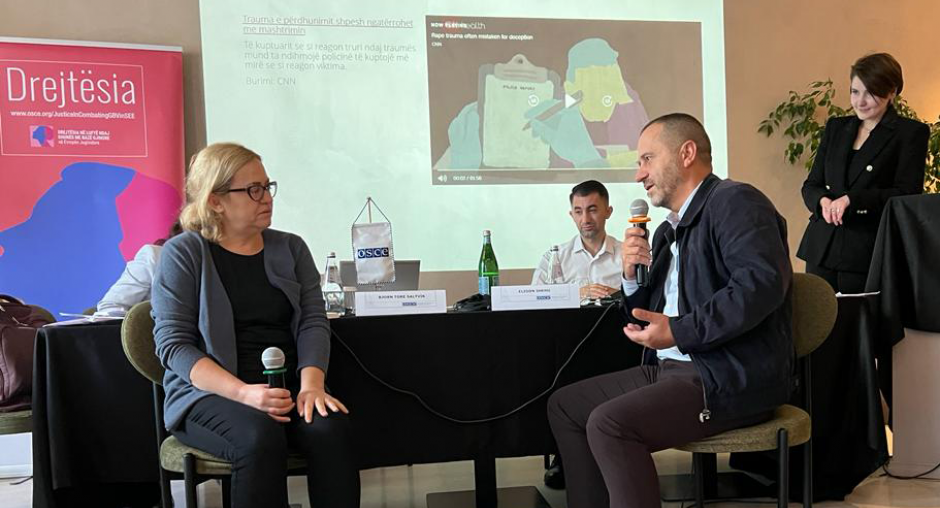OSCE training strengthens criminal justice responses to violence against women and girls in Albania

The OSCE delivered a national training course on gender-responsive policing of violence against women and girls from 13 to 17 November in Riviera Golem, Albania.
The course – organized by the OSCE Transnational Threats Department, the OSCE Presence in Albania and the Albanian Security Academy – was delivered by national police officers and prosecutors who had previously benefited from the OSCE train-the-trainers course in Warsaw, as well as by other national experts engaged with the OSCE. Twenty police officers and eight prosecutors from various municipalities in Albania - twenty women and eight men – learned to respond to cases of violence against women and girls while maintaining a victim-centred approach.
“Gender-based violence is not a mere statistic. It is an unfortunate and underreported phenomenon that permeates the fabric of society, impacting the security and well-being of every individual residing in Albania,” said Ambassador Bruce Berton, Head of the OSCE Presence in Albania.
“Gender-based violence is a concern nowadays, representing a violation of human rights and freedoms and leading to long-term consequences for the community. Since the Albanian State Police is the first point of contact for the victims of gender-based violence, there is a need to develop an effective approach to preventing this phenomenon. Therefore, the Albanian Security Academy has integrated gender-based violence in its curriculum,” said Professor Ilirjan Mandro, rector of the Security Academy.
“Let us not forget the rising number of teenagers and young people who are experiencing online gender-based violence. Threats, abuse and exploitation on social media platforms often result in stigma, shame and serious trauma. The police have to respond to these crimes, and support the victims,” underlined Bjorn Tore Saltvik, project manager and OSCE Adviser on Police Development and Reform.
“In Albania, prosecutors and police officers tend to prefer dealing with major crimes like corruption or organized crime. What is the point, however, in fighting against such phenomena, if we do not address crimes within the family in the first place, considering such crime destroys families and the entire society?,” stressed Albert Kuliçi, public prosecutor at the Prosecutor’s Office in Tirana.
OSCE will continue to support the criminal justice practitioners from South-Eastern Europe in their fight against violence against women and girls and deliver similar training course to law enforcement also in Serbia at the end of November 2023, in addition to the ones already organized in North Macedonia, Bosnia and Herzegovina and Montenegro.
These activities contribute to the implementation of the Council of Europe’s Istanbul Convention on preventing and combating violence against women and domestic violence. They are organized in the framework of the OSCE project Enhancing Criminal Justice Capacities for Combating Gender-based Violence in South-Eastern Europe, funded by Germany, Norway, Finland, Austria, France and Italy.
